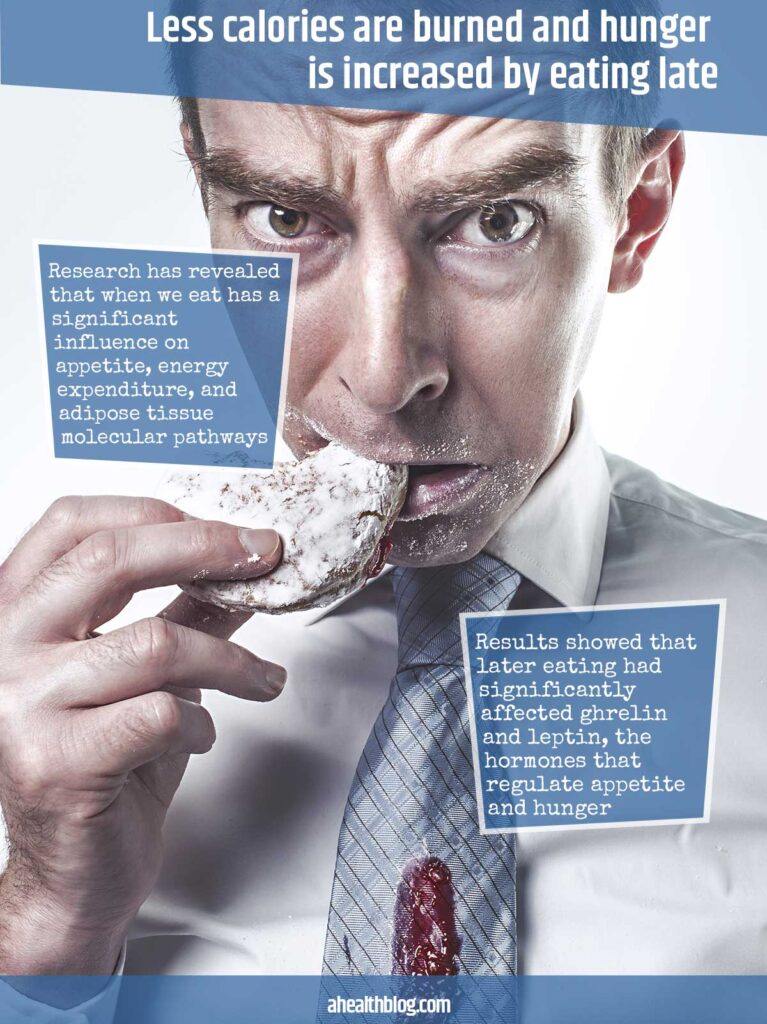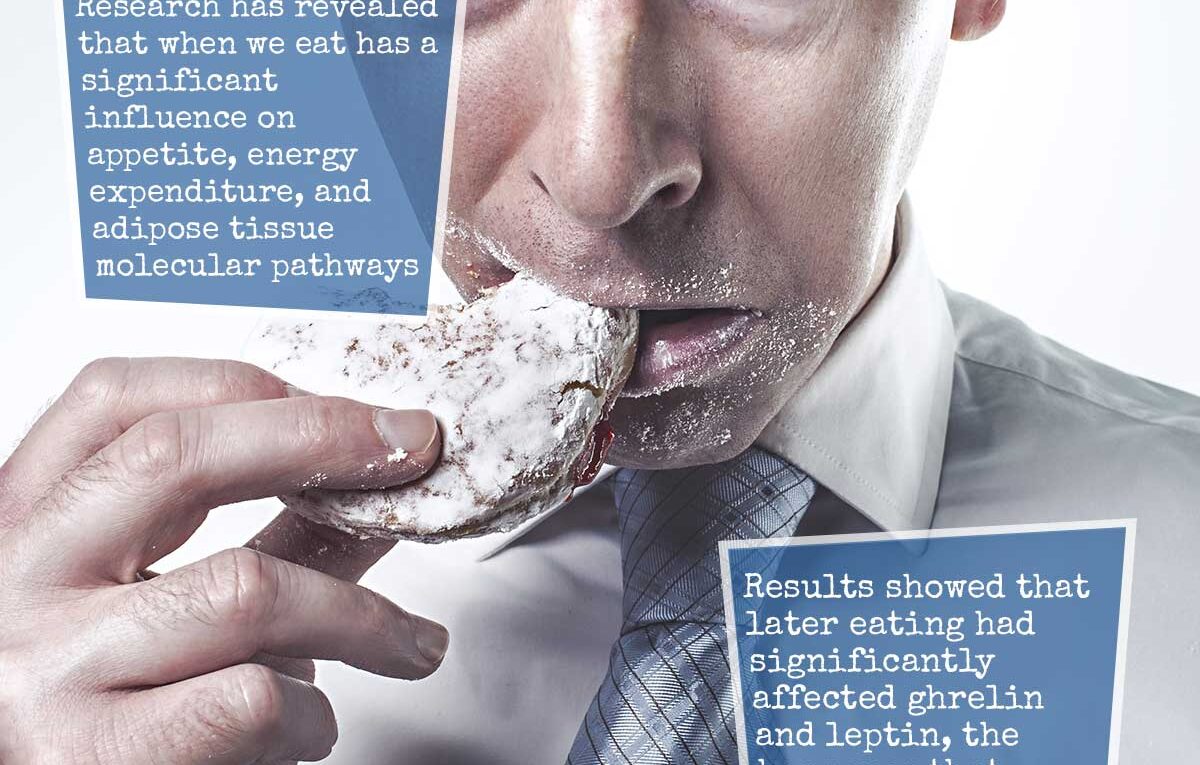Eating Late: Impact on Calorie Burning and Hunger
Studies have demonstrated that when we eat can have a tremendous effect on appetite, energy expenditure, and molecular pathways for fat storage.
Researchers wanted to investigate what mechanisms might explain why eating late increases obesity risk, since prior research had linked eating late with an increase in body fat, increased risk for obesity and impaired weight loss.
Researchers discovered that eating four hours later makes a dramatic difference in terms of the way fat is stored, hunger levels and how calories are burnt after consumption.
Researchers studied 16 individuals whose BMI fell within the obese or overweight categories. Each participant participated in two laboratory protocols, one featuring an early meal schedule and another approximately 4 hours later; both meals being identically prepared.
Sleep and wake schedules were established two to three weeks before starting each protocol, and individuals strictly adhered to identical meal plans and diets at home during the final three days before entering a laboratory. Individuals regularly recorded their hunger levels in the laboratory by providing regular small blood samples during their day as well as energy expenditure and body temperature measurements.
To assess how eating timing affects body composition or molecular pathways associated with adipogenesis, adipose tissue biopsies were collected from selected individuals during laboratory testing in early and late eating protocols for comparison of gene expression patterns between them.
Results indicated that later eating had an immediate and pronounced impact on both ghrelin and leptin levels – two hormones which regulate appetite and hunger – over the 24-hour study. Levels of the satiety-signaling leptin hormone had significantly decreased between late eating protocols versus earlier ones.
Individuals who ate later also experienced slower calorie burn, and their adipose tissue gene expression showed reduced lipolysis and an increase in adipogenesis (fat growth). These findings point to converging molecular and physiological mechanisms linking late night eating with an increased risk of obesity.
These findings not only corroborate a body of research showing that eating later increases the probability of obesity, but they provide insight into its genesis. By employing a randomized crossover study and controlling for environmental and behavioral factors including light exposure, sleep duration, posture and physical activity – including light exposure, posture changes and physical activity levels – researchers were able to detect changes in our energy balance systems – an indicator of how our bodies process the food we ingest.

